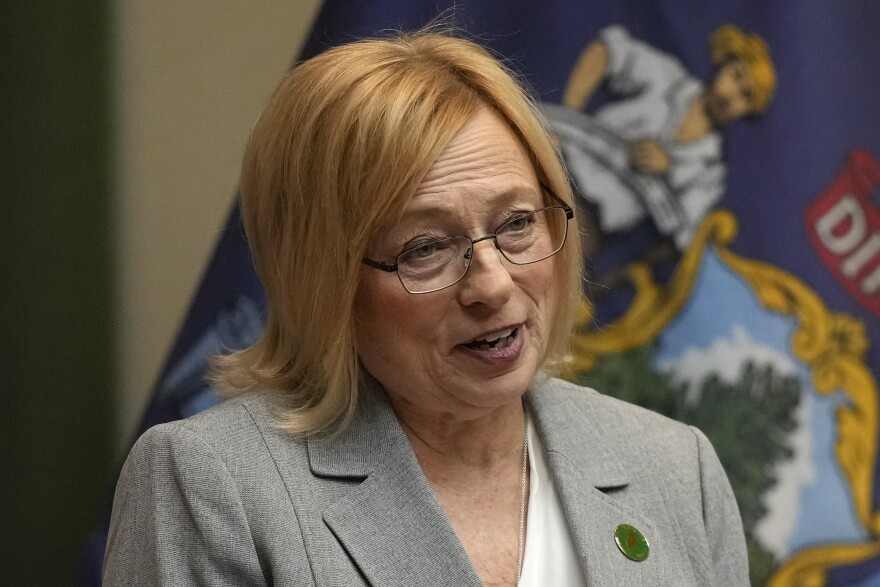Gov. Janet Mills welcomed news Thursday afternoon that President Donald Trump has suspended tariffs on many goods imported from Canada.
But Mills says the economic uncertainty caused by Trump's on-again, off-again trade policy is already harming Maine residents and businesses. And it remained unclear Thursday evening whether certain Canadian exports that are important to Maine's economy, such as gas and heating oil, are exempt under the new plan.
Trump reversed course less than 48 hours after his administration imposed 25% tariffs on goods from Canada and Mexico. The president announced that goods covered under an existing trade pact, the United States-Mexico-Canada Agreement or USMCA, will not be subject to tariffs at least until April 2.
“The president’s broad tariffs on our major trading partners will increase prices for Maine people and businesses and cause havoc to our economy," Mills said in a statement on Thursday. "While today’s temporary tariff reprieves are welcome, they are creating significant economic uncertainty that is also damaging to our people, businesses, and our economy. I urge the president to stop his pursuit of these unnecessary tariffs and focus on fulfilling his campaign commitment to lower the prices of eggs, bread, heat, housing, and cars.”
The short-lived tariffs on Mexican and Canadian imports rattled the financial markets and caused alarms on both sides of the border, including in Maine.
Mills and most members of Maine's congressional delegation had strongly opposed the tariffs on Canada because the state's economy is interwoven with its provincial neighbors. They predicted that tariffs on Canadian goods — combined with reciprocal tariffs from Canada on U.S.-made products — will only harm Maine consumers, households and businesses that operate on both sides of the border, such as those in the forest products and commercial fishing industries.
There were also growing concerns about the impact on tourism. Prime Minister Justin Trudeau drove that message home earlier this week when he predicted that some citizens of his country will opt not to visit Canadian vacation hotspots like Old Orchard Beach this year.
Canada is Maine's largest trading partner, by far, accounting for more than $6 billion in cross-border trade last year. Maine imported more than $4.7 billion in Canadian goods last year and exported nearly $1.3 billion in products to Canada.
Maine is particularly reliant on Canada for gasoline and heating oil, which would have been subject to a 10% tariff under Trump's original plan. More than 80% of the refined petroleum products consumed in Maine come from Canada.
But it was unclear immediately following Trump's announcement whether Canadian petroleum products would still be subject to additional import levies despite the suspension on other tariffs.
The Associated Press reported that roughly 62% of imports from Canada would still face tariffs because they are not covered by the USMCA, according to a White House official who briefed reporters. The New York Times, meanwhile, reported that the White House official said Canadian oil was not typically covered by the earlier trade agreement and would, therefore, still be subject to a 10% tariff. Canadian power plants also sell electricity to parts of Maine and to the New England power grid.




